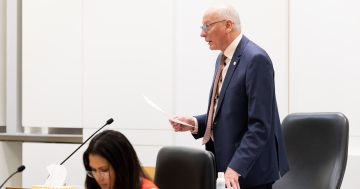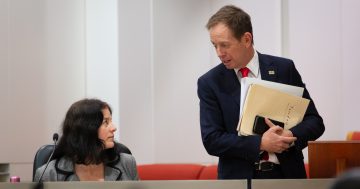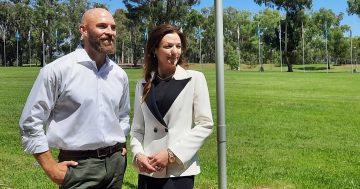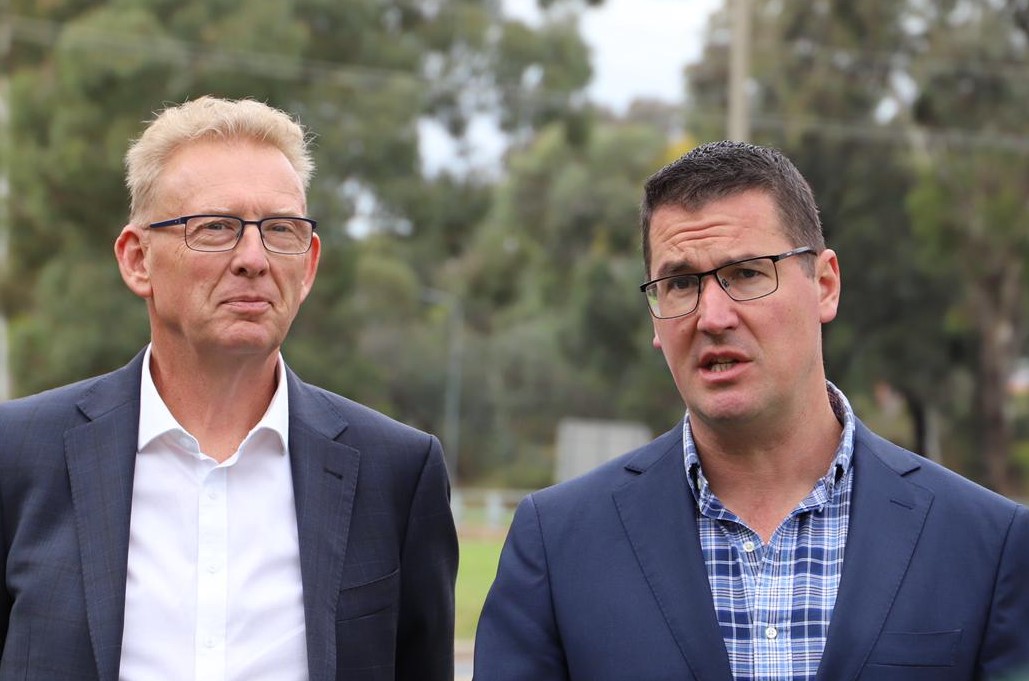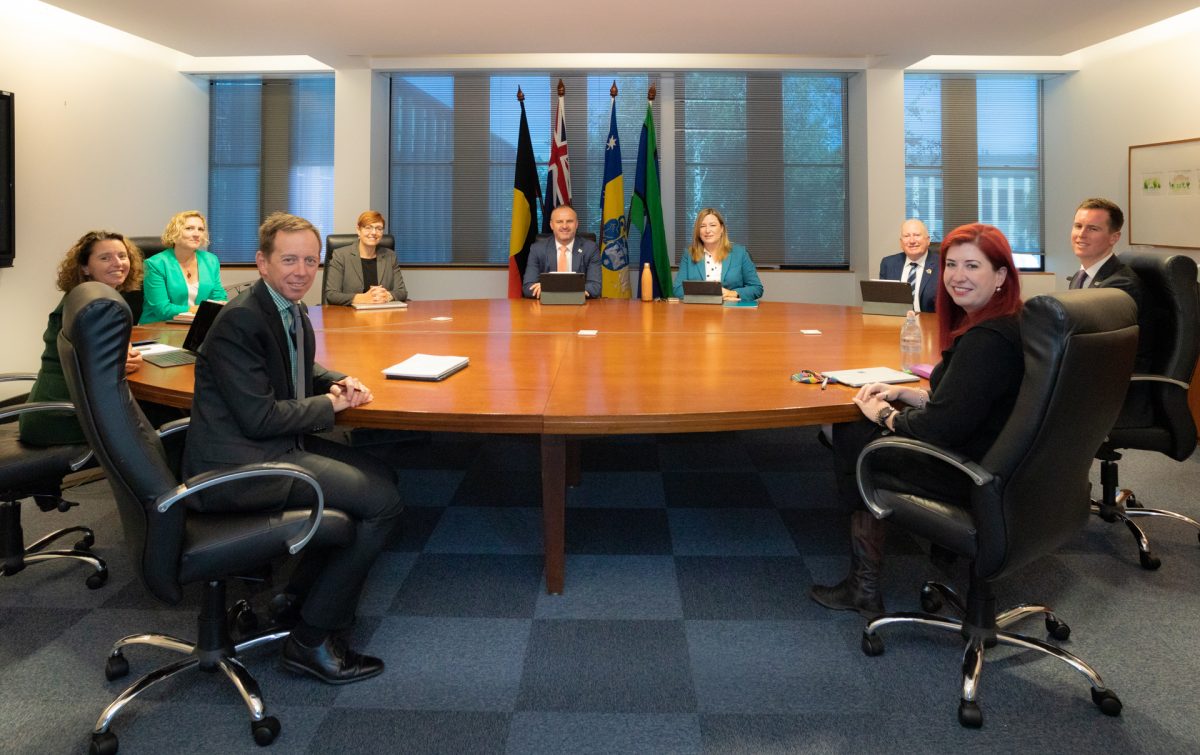
Ministers Shane Rattenbury, Rebecca Vassarotti, Emma Davidson, Rachel Stephen-Smith, Andrew Barr, Yvette Berry, Mick Gentleman, Chris Steel and Tara Cheyne. Photo: Michelle Kroll.
It’s mid-term and things are travelling reasonably well for the Barr Government.
They’ve seen off the pandemic, the economy is in reasonable shape (albeit with an ongoing and hefty deficit) and light rail is proceeding, despite a fair degree of irritation over the project in some quarters.
But irritation is about as strong as it gets – because, after two decades of one-party rule in Canberra, there’s not only a lack of opposition, there’s also no structural way to enforce accountability on the Government and no meaningful way for other voices to influence decision-making.
Short of legal proceedings and the occasional dead hand of the Commonwealth (recently seen off, and rightly so, by the Territory Rights bill), the ACT Government is bound by remarkably little apart from itself.
All decision-making rests, ultimately, with the Chief Minister. His powers are wide-ranging in a jurisdiction without a third tier of government, an upper house of review or any checks and balances other than a commitment to community consultation.
There is no popularly elected local government. Community councils, populated by energetic and enthusiastic volunteer members, are, in essence, toothless tigers.
Their members develop briefs, make submissions on issues of importance, survey their communities and advocate extensively. But the ACT Government can also comfortably ignore all this because the Community Councils are not legislatively constituted and have no decision-making powers of their own. Politicians would be prudent not to ignore Community Councils – but the sky won’t fall in if they do.
At another level are Ministerial Advisory Councils, ranging from multicultural affairs to disability. The ACT Government provides a modest retainer for the chairs and members of these bodies, covering the costs of meeting and external deliberations.*
The councils are supported by directorates and often work hard to produce reliable information for decision-making. The roles, however, are loosely defined, ministers are not bound (and nor should they be) by any of the Council’s work and again, can feel free to completely ignore an ocean of well-intended advice.
Within the Assembly, it’s long been a point of pride that the committee system works with far more bipartisan cooperation behind the scenes than is generally obvious to the public.
But unlike most State Parliaments and the Commonwealth, the Assembly has no Senate or Legislative Council to coax into agreement on major issues. There are no deal-makers and deal-breakers with whom to reach a compromise, no concessions that must be made, and no framing that must encompass a diverse range of views to ensure legislation passes.
The very mandate conferred on David Pocock in the Senate – to stand for the Territory, to argue our case and wield his balance of power to our benefit – is entirely absent in the Territory.
About the only brake on Labor is the governing agreement with the Greens, but in December it was revealed only 16 of more than 100 commitments made in the 2020 power-sharing agreement have been delivered.
The six Green MLAs could conceivably wield a fair degree of power if they chose to find common ground with the Liberals. That’s not out of the question – for example, Liberal MLA Nicole Lawder has been arguing strenuously that water quality in Lake Tuggeranong and management of the southern catchment needs urgent attention.
There would be other issues where the Greens could flex their muscle and force a vote, particularly if they fall within the governing agreement’s ambit, provided the Liberals can get over their factional warfare and direct their energies towards making change.
The ACT population won’t actively choose more layers of government, so a house of review is unlikely, as are popularly elected local councils. The committee system could be strengthened, but there are few other avenues to challenge the Government other than the court of public opinion.
Chief Minister Andrew Barr has flagged that the Assembly will legislate on voluntary assisted dying this year and consider how the proposed Indigenous Voice will affect the Territory. There is a sizeable deficit, and the ongoing constraints light rail imposes on the ACT’s slender budget are a matter of continuing concern. There is work to be done on major issues.
As independents surge on the federal stage and voters across Australia seek out strong local representation, now is the time for both the Liberals and Greens to flex their muscles and ensure, at the very least, that the Government is called to account as it decides our future.
*The author has been a Ministerial Advisory Council member in the past.














